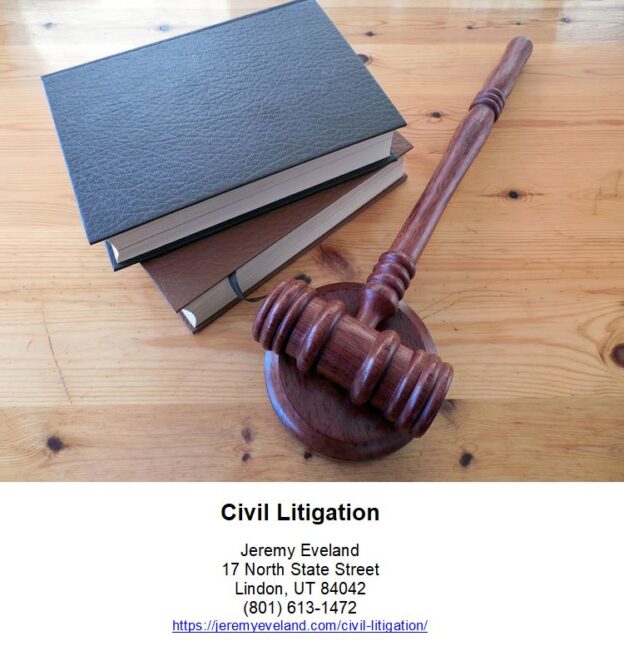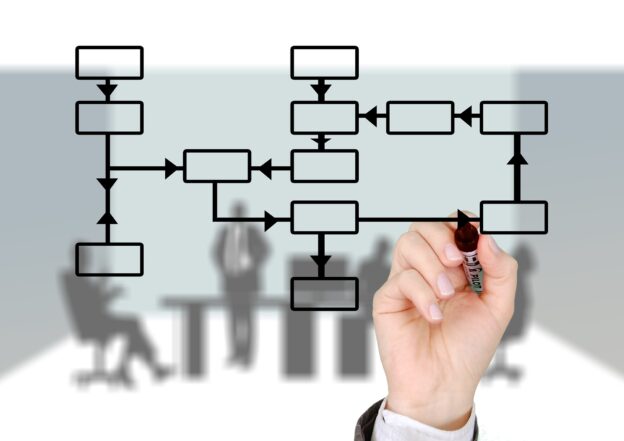-
Business Lawyer
- Introduction
- What Are the Risks of an Asset Purchase Agreement?
- What Are the Benefits of an Asset Purchase Agreement?
- How to Draft an Asset Purchase Agreement
- Understanding the Different Types of Asset Purchase Agreements
- What to Look for in an Asset Purchase Agreement
- Why You Need A Lawyer To Draft Your Asset Purchase Agreement
“Secure Your Assets with an Asset Purchase Agreement”
Introduction
An Asset Purchase Agreement is a legal document that outlines the terms and conditions of the sale of a business’s assets. It is a contract between the buyer and seller that outlines the details of the sale, including the purchase price, payment terms, and any warranties or representations made by either party. The agreement also outlines the responsibilities of each party in the transaction, such as the buyer’s responsibility to conduct due diligence and the seller’s responsibility to provide accurate information about the assets being sold. The Asset Purchase Agreement is an important document that should be carefully reviewed and negotiated by both parties before signing.
What Are the Risks of an Asset Purchase Agreement?
An Asset Purchase Agreement (APA) is a legal document that outlines the terms and conditions of a business transaction in which one party purchases the assets of another. While an APA can be a beneficial tool for both parties involved, there are certain risks associated with this type of agreement.
The first risk is that the buyer may not receive all of the assets that were promised in the agreement. This can occur if the seller fails to disclose all of the assets that are part of the transaction or if the buyer fails to conduct a thorough due diligence process. Additionally, the buyer may not receive the full value of the assets if the seller has not accurately represented the condition of the assets.
Another risk is that the buyer may be liable for any liabilities associated with the assets. This includes any debts, taxes, or other obligations that the seller has not disclosed. The buyer may also be liable for any environmental issues associated with the assets.
Finally, the buyer may be exposed to potential litigation if the seller fails to comply with the terms of the agreement. This could include breach of contract claims or other legal action.
Overall, an Asset Purchase Agreement can be a beneficial tool for both parties involved in a business transaction. However, it is important to understand the risks associated with this type of agreement in order to ensure that both parties are adequately protected.
What Are the Benefits of an Asset Purchase Agreement?
An asset purchase agreement is a legal document that outlines the terms and conditions of a sale of assets from one party to another. This type of agreement is commonly used in business transactions, such as the sale of a business or the purchase of real estate.
The primary benefit of an asset purchase agreement is that it provides a clear and legally binding document that outlines the terms of the sale. This document can help protect both parties involved in the transaction by clearly defining the rights and obligations of each party.
An asset purchase agreement also helps to ensure that the transaction is conducted in a fair and equitable manner. The agreement will typically include provisions that protect the buyer from any potential liabilities associated with the assets being purchased. This can help to ensure that the buyer is not held liable for any debts or obligations that may be associated with the assets.
The agreement can also help to protect the seller by clearly outlining the terms of the sale. This can help to ensure that the seller receives the full amount of the purchase price and that the buyer is not able to take advantage of any potential loopholes in the agreement.
Finally, an asset purchase agreement can help to streamline the transaction process. By clearly outlining the terms of the sale, the agreement can help to reduce the amount of time and effort required to complete the transaction. This can help to ensure that the transaction is completed in a timely and efficient manner.
How to Draft an Asset Purchase Agreement
An asset purchase agreement is a legal document that outlines the terms and conditions of a sale of assets from one party to another. It is important to draft an asset purchase agreement that is comprehensive and legally binding.
1. Identify the Parties: The first step in drafting an asset purchase agreement is to identify the parties involved in the transaction. This includes the buyer, the seller, and any other parties that may be involved in the transaction.
2. Describe the Assets: The next step is to describe the assets that are being purchased. This should include a detailed description of the assets, including any serial numbers or other identifying information.
3. Set the Purchase Price: The purchase price should be clearly stated in the agreement. This should include any applicable taxes or fees that may be due.
4. Establish Payment Terms: The agreement should also include the payment terms for the purchase. This should include the payment method, the due date, and any other applicable terms.
5. Include Representations and Warranties: The agreement should also include representations and warranties from both parties. This should include any representations and warranties regarding the condition of the assets being purchased.
6. Include Indemnification Provisions: The agreement should also include indemnification provisions. This should include any liabilities or damages that may arise from the purchase of the assets.
7. Include Closing Conditions: The agreement should also include closing conditions. This should include any conditions that must be met before the transaction can be completed.
8. Include Miscellaneous Provisions: The agreement should also include any other provisions that may be necessary. This could include provisions regarding confidentiality, dispute resolution, or any other applicable provisions.
By following these steps, you can draft an asset purchase agreement that is comprehensive and legally binding. It is important to ensure that all of the necessary provisions are included in the agreement to ensure that the transaction is legally binding.
Understanding the Different Types of Asset Purchase Agreements
Asset purchase agreements are contracts that are used to transfer ownership of assets from one party to another. These agreements are commonly used in business transactions, such as the sale of a business or the purchase of real estate. It is important to understand the different types of asset purchase agreements and how they can be used in different situations.
The first type of asset purchase agreement is a stock purchase agreement. This type of agreement is used when one party is buying the stock of another company. The agreement outlines the terms of the sale, including the purchase price, the number of shares being purchased, and any restrictions on the transfer of the stock.
The second type of asset purchase agreement is an asset purchase agreement. This type of agreement is used when one party is buying the assets of another company. The agreement outlines the terms of the sale, including the purchase price, the type of assets being purchased, and any restrictions on the transfer of the assets.
The third type of asset purchase agreement is a real estate purchase agreement. This type of agreement is used when one party is buying real estate from another party. The agreement outlines the terms of the sale, including the purchase price, the type of real estate being purchased, and any restrictions on the transfer of the real estate.
The fourth type of asset purchase agreement is a business purchase agreement. This type of agreement is used when one party is buying a business from another party. The agreement outlines the terms of the sale, including the purchase price, the type of business being purchased, and any restrictions on the transfer of the business.
Finally, the fifth type of asset purchase agreement is a lease purchase agreement. This type of agreement is used when one party is leasing an asset from another party. The agreement outlines the terms of the lease, including the rental rate, the length of the lease, and any restrictions on the transfer of the asset.
Understanding the different types of asset purchase agreements is important for any business transaction. It is important to understand the terms of each agreement and how they can be used in different situations. By understanding the different types of asset purchase agreements, businesses can ensure that they are making the best decisions for their business.
What to Look for in an Asset Purchase Agreement
An asset purchase agreement is a legal document that outlines the terms and conditions of a sale of assets from one party to another. It is important to ensure that the agreement is comprehensive and covers all aspects of the transaction. When drafting an asset purchase agreement, the following should be considered:
1. Identification of the parties: The agreement should clearly identify the buyer and seller, as well as any other parties involved in the transaction.
2. Description of the assets: The agreement should provide a detailed description of the assets being purchased, including any serial numbers or other identifying information.
3. Purchase price: The agreement should specify the purchase price for the assets, as well as any payment terms or conditions.
4. Representations and warranties: The agreement should include representations and warranties from the seller regarding the condition of the assets and any other relevant information.
5. Indemnification: The agreement should include provisions for indemnification in the event of any claims or losses related to the assets.
6. Closing conditions: The agreement should specify any conditions that must be met prior to closing the transaction.
7. Governing law: The agreement should specify which state or country’s laws will govern the transaction.
8. Dispute resolution: The agreement should include provisions for resolving any disputes that may arise.
By including these elements in an asset purchase agreement, the parties can ensure that the transaction is properly documented and that their rights and obligations are clearly defined.
Why You Need A Lawyer To Draft Your Asset Purchase Agreement
When it comes to purchasing assets, it is important to have a legally binding agreement in place. An asset purchase agreement is a contract between two parties that outlines the terms and conditions of the sale of assets. It is essential to have a lawyer draft your asset purchase agreement to ensure that all of the necessary legal requirements are met and that the agreement is legally binding.
A lawyer can help you to identify any potential legal issues that may arise from the purchase of the assets. They can also help to ensure that the agreement is properly drafted and that all of the necessary clauses are included. This includes clauses that protect both parties in the event of a dispute or breach of contract.
A lawyer can also help to negotiate the terms of the agreement. They can help to ensure that the agreement is fair and equitable for both parties. They can also help to ensure that the agreement is legally binding and enforceable.
Finally, a lawyer can help to ensure that the agreement is properly executed. This includes ensuring that all of the necessary documents are signed and that all of the necessary steps are taken to make the agreement legally binding.
Having a lawyer draft your asset purchase agreement is essential to ensure that the agreement is legally binding and enforceable. It is also important to ensure that all of the necessary legal requirements are met and that the agreement is fair and equitable for both parties.
Areas We Serve
We serve individuals and businesses in the following locations:
Salt Lake City Utah
West Valley City Utah
Provo Utah
West Jordan Utah
Orem Utah
Sandy Utah
Ogden Utah
St. George Utah
Layton Utah
South Jordan Utah
Lehi Utah
Millcreek Utah
Taylorsville Utah
Logan Utah
Murray Utah
Draper Utah
Bountiful Utah
Riverton Utah
Herriman Utah
Spanish Fork Utah
Roy Utah
Pleasant Grove Utah
Kearns Utah
Tooele Utah
Cottonwood Heights Utah
Midvale Utah
Springville Utah
Eagle Mountain Utah
Cedar City Utah
Kaysville Utah
Clearfield Utah
Holladay Utah
American Fork Utah
Syracuse Utah
Saratoga Springs Utah
Magna Utah
Washington Utah
South Salt Lake Utah
Farmington Utah
Clinton Utah
North Salt Lake Utah
Payson Utah
North Ogden Utah
Brigham City Utah
Highland Utah
Centerville Utah
Hurricane Utah
South Ogden Utah
Heber Utah
West Haven Utah
Bluffdale Utah
Santaquin Utah
Smithfield Utah
Woods Cross Utah
Grantsville Utah
Lindon Utah
North Logan Utah
West Point Utah
Vernal Utah
Alpine Utah
Cedar Hills Utah
Pleasant View Utah
Mapleton Utah
Stansbury Par Utah
Washington Terrace Utah
Riverdale Utah
Hooper Utah
Tremonton Utah
Ivins Utah
Park City Utah
Price Utah
Hyrum Utah
Summit Park Utah
Salem Utah
Richfield Utah
Santa Clara Utah
Providence Utah
South Weber Utah
Vineyard Utah
Ephraim Utah
Roosevelt Utah
Farr West Utah
Plain City Utah
Nibley Utah
Enoch Utah
Harrisville Utah
Snyderville Utah
Fruit Heights Utah
Nephi Utah
White City Utah
West Bountiful Utah
Sunset Utah
Moab Utah
Midway Utah
Perry Utah
Kanab Utah
Hyde Park Utah
Silver Summit Utah
La Verkin Utah
Morgan Utah
Asset Purchase Agreement Consultation
When you need help with a Asset Purchase Agreement call Jeremy D. Eveland, MBA, JD (801) 613-1472 for a consultation.
Jeremy Eveland
17 North State Street
Lindon UT 84042
(801) 613-1472
Related Posts
Charitable Estate Planning Trusts
Estate Planning Lawyer Sandy Utah
Using Disclaimers In Estate Planning
Business Succession Lawyer Spanish Fork Utah
Corporate Attorney St. George Utah


















